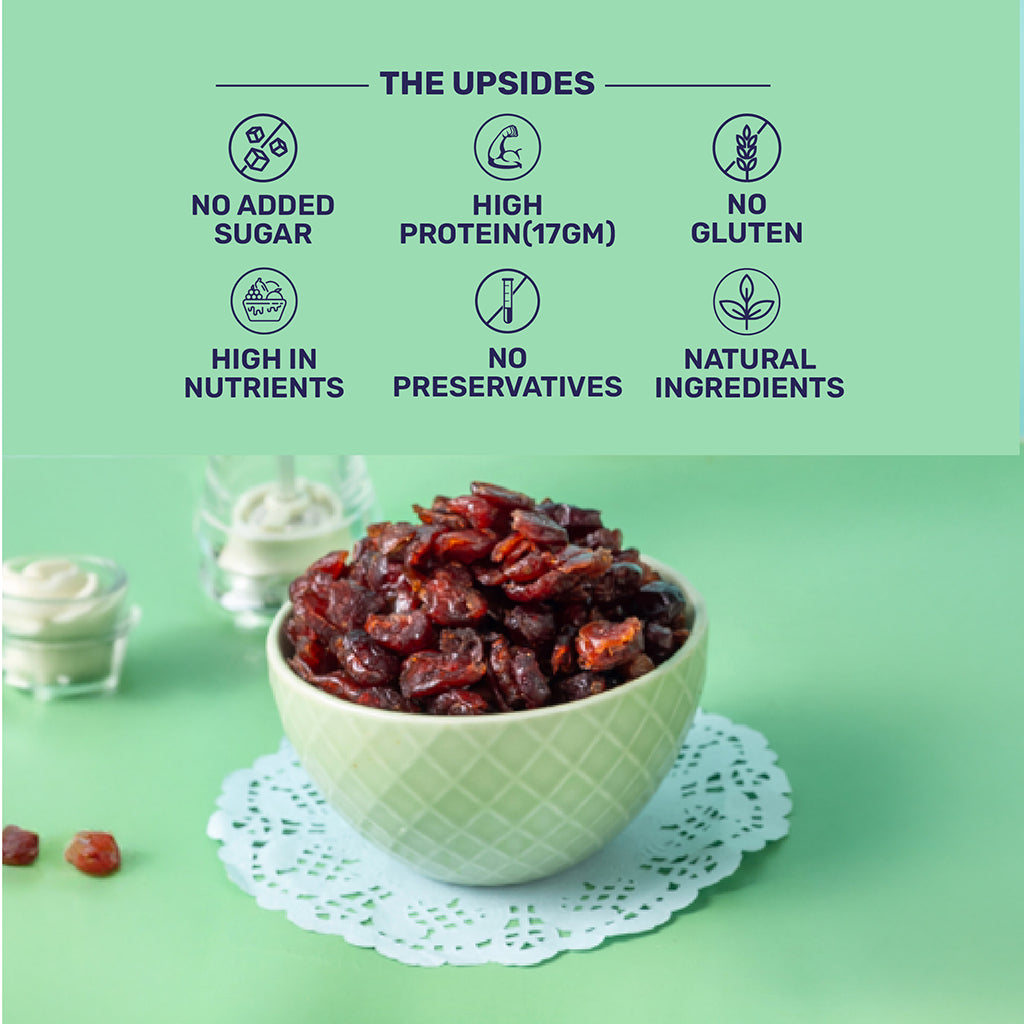
Did you know that 60% of Indian adults are metabolically unhealthy? And have no idea they are headed towards a slow death stemming from metabolic issues?
Well, it’s true, because 85% of all chronic diseases begin from metabolic disorders! And very few people understand the root cause. What’s worse? Fad diets and their promises of quick weight loss. They keep people from better health since they often cut out key foods. More importantly, everybody has unique dietary needs. So, you truly need to understand your body for the best results.
We believe it’s high time to usher in a healthier future.
Not many truly understand what it means to be metabolically healthy. You may have seen innumerable diet plans across the internet that suggest boosting metabolism with various foods to lose weight consistently. This ‘metabolism’ is your body’s life-sustaining ability to absorb nutrients and energy from digested food. Metabolic health is having ideal levels of blood sugar, triglycerides, (HDL) cholesterol, blood pressure, and waist size naturally. In a nutshell, it’s a crucial element of our well-being.
-
Metabolism is the set of cellular mechanisms producing energy from food, to power every process in the human body
-
Metabolic health is a parameter to describe how well we generate and process energy in our body
Your food choices, microbiome, exercise, sleep, mental health, age, sex, and genes shape your unique metabolic health. Since every cell requires energy to function, metabolic health is paramount for well-being. In its true sense, metabolic health means: having no metabolic syndrome.
What is Metabolic Syndrome?
Metabolic Syndrome is a silent epidemic. It is a cluster of conditions that increase your risk of heart disease, stroke, and type 2 diabetes. These conditions include increased blood pressure, high blood sugar, excess body fat, abnormal cholesterol or triglyceride levels, fatigue, and blurred vision. Almost one in three adults in India suffers from Metabolic Syndrome (MS). Hence, following the right choices can make all the difference in your world. And it all starts with you.
Reasons behind Metabolic Decline for the population at large:
● Too much carbs/sugar in our food
● Too much glucose in our blood
● Insulin resistance + fat storage
Good Vs Bad Metabolism
| Upside of a good metabolism |
Downside of a bad metabolism |
| Improved fat-burning abilities
|
Weight gain that’s difficult to lose
|
| High-functioning immune system
|
Thyroid dysfunction
|
| Stable, sustained energy throughout the day/ Sharp memory
|
Fatigue/brain fog
|
| Improved sexual health & Fertility
|
Hypertension
|
| Decreased anxiety/depression
|
Depression/anxiety
|
| Lower risk of chronic diseases - diabetes, Alzheimer’s, obesity, fatty liver disease, stroke, etc. |
Risk of heart, liver, brain, and kidney diseases/cancer
|
| Clear skin |
|
What Does Blood Sugar Have to Do with Metabolic Health?
Glucose is a simple sugar that’s broken down from the carbohydrates we consume. After digestion, when glucose enters our bloodstream, it signals our pancreas to release insulin. Now, the relationship between glucose and insulin is a critical one. Insulin is a hormone that simply tells our cells to absorb glucose. Sounds like a small job but an important one nevertheless.
Once the insulin has done its job, our cells’ mitochondria process some of the glucose, forming energy for our cells and any excess glucose is stored in the muscle and liver as glycogen, and stored in fat cells as triglycerides. (See image below). When our bodies need energy, we tap into glucose from the bloodstream, glycogen, or create glucose from other compounds like amino acids (breakdown products of proteins).

Although, when our bodies get taxed processing too much dietary glucose over long periods, it throws the balance off these processes leading to health problems. First, excess glucose causes the repeated release of insulin. High insulin levels eventually cause cells to become ‘numb’ to insulin’s effect. This process is called insulin resistance. Less glucose goes into the cells, so circulating glucose rises. Second, high insulin levels block stored fat from being broken down and used for energy. So, ironically, too much energy as glucose leads us to have more trouble using energy effectively.
Unsurprisingly, common chronic diseases are rooted in poor glucose control. It is a relatively modern phenomenon: first, we knew the dangers of starvation. Now, the dangers of eating too much.
We need to maintain a steady glucose response throughout the day to avoid the buildup of insulin resistance. The body regulates blood glucose levels to remain steady: enough glucose to fuel the cells, though not too much to overload the bloodstream. The blood’s internal environment should remain stable to support vital bodily functions.
To wrap it up
Health is a conscious choice. We need to know what is right for us. Yet, we may not always understand the fundamentals of metabolic health affecting our weight, activity levels, and long-term health. For better metabolic health, we should strive to improve insulin sensitivity by optimizing better glucose response over a period. Factors like food, stress, sleep, activities & our gut microbiome affect our body’s glucose response and thus, demand our immediate attention and utmost care.
Once the insulin has done its job, our cells’ mitochondria process some of the glucose, forming energy for our cells and any excess glucose is stored in the muscle and liver as glycogen, and stored in fat cells as triglycerides. (See image below). When our bodies need energy, we tap into glucose from the bloodstream, glycogen, or create glucose from other compounds like amino acids (breakdown products of proteins).

 Although, when our bodies get taxed processing too much dietary glucose over long periods, it throws the balance off these processes leading to health problems. First, excess glucose causes the repeated release of insulin. High insulin levels eventually cause cells to become ‘numb’ to insulin’s effect. This process is called insulin resistance. Less glucose goes into the cells, so circulating glucose rises. Second, high insulin levels block stored fat from being broken down and used for energy. So, ironically, too much energy as glucose leads us to have more trouble using energy effectively.
Unsurprisingly, common chronic diseases are rooted in poor glucose control. It is a relatively modern phenomenon: first, we knew the dangers of starvation. Now, the dangers of eating too much.
We need to maintain a steady glucose response throughout the day to avoid the buildup of insulin resistance. The body regulates blood glucose levels to remain steady: enough glucose to fuel the cells, though not too much to overload the bloodstream. The blood’s internal environment should remain stable to support vital bodily functions.
Although, when our bodies get taxed processing too much dietary glucose over long periods, it throws the balance off these processes leading to health problems. First, excess glucose causes the repeated release of insulin. High insulin levels eventually cause cells to become ‘numb’ to insulin’s effect. This process is called insulin resistance. Less glucose goes into the cells, so circulating glucose rises. Second, high insulin levels block stored fat from being broken down and used for energy. So, ironically, too much energy as glucose leads us to have more trouble using energy effectively.
Unsurprisingly, common chronic diseases are rooted in poor glucose control. It is a relatively modern phenomenon: first, we knew the dangers of starvation. Now, the dangers of eating too much.
We need to maintain a steady glucose response throughout the day to avoid the buildup of insulin resistance. The body regulates blood glucose levels to remain steady: enough glucose to fuel the cells, though not too much to overload the bloodstream. The blood’s internal environment should remain stable to support vital bodily functions.








Comments (0)
Back to Learn